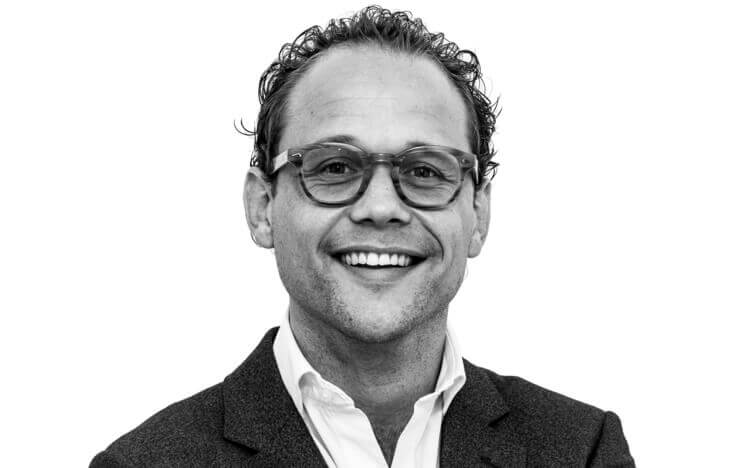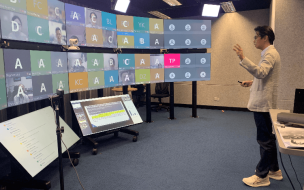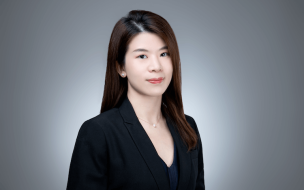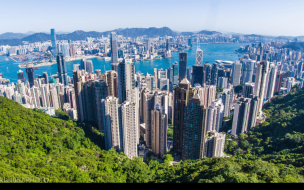As a businessman enjoying a successful career in mergers and acquisitions at KPMG, the rapid economic growth Asia was experiencing only intrigued him further.
He knew he wanted in—and he knew that an MBA was the way to get there.
Marc chose to do his MBA at HKUST Business School in Hong Kong in 2010, and since then the degree has allowed him to change much more than his location. In fact, it’s changed his career.
From working in advisory at KPMG, he has now made triple jump—changing location, industry, and function—into a position as VP Asia Pacific and strategic planning at luxury fashion brand Ports 1961 in Hong Kong. That’s something he says wasn’t imaginable before his MBA.
“I wanted to think at a higher level”
“[Before the MBA], I didn’t have the focus to necessarily switch careers, as I was well-aware that switching careers and moving to a different region at the same time was a challenging task,” Marc recalls.
Moving to Hong Kong for his degree was a crucial part of overcoming this challenge.
“I wanted to be able to think at a higher level and view business from a broader perspective, as well as to equip myself with an understanding of other fields such as strategy, supply chain management and marketing—all at the same time as preparing myself for a career in Asia,” he says.
It was a good call; the teaching on the MBA program at HKUST Business School exposed Marc to strategy and marketing, as well as a range of different cultures through the students in his class. Hong Kong is a famously international city, and 98% of the MBA class at HKUST is of non-local nationality.
These aspects of the course helped Marc to achieve the higher-level thinking he was looking for by opening his mind to new concepts and approaches.
In particular, the MBA’s rigorous program of both core courses and electives, in which students learn a range of skills that allow them to tailor their learning to their career goals.
Core courses on the MBA include modules covering data analysis and doing business in China, while electives allow students to dive further into these topics, for example by studying the business applications of blockchain.
For MBAs like Marc who want to change their careers entirely, this opportunity to hone new skills is key to career development—and being able to place this teaching into the context of Asia’s business landscape is even more valuable.
“Especially for the luxury fashion and finance sector, Hong Kong is an important location,” Marc explains. “With the growing wealth of the Asian consumer, the luxury industry, and the finance industry, I expect Asia will play an even bigger role in the global economy.”
Coming from an accounting and finance background and going into strategy in luxury fashion, the HKUST MBA was perfectly situated to advance Marc’s goals—particularly in terms of the business faculty’s expertise on the matter of technology.
“HKUST is an expert in doing business in Asia”
On the Business Technology elective at HKUST, students learn not only about the programming language Python and innovation management, but also crucially Big Data Analytics—a skill that Marc believes is essential to business survival in the digital age.
“The instant gratification expectation of [the modern] consumer challenges us, as you need to react fast,” Marc says. “I think the biggest challenge is the amount of data we [as businesses and as consumers] are exposed to on a daily basis and how to interpret these data in the most efficient way to draw the correct conclusion.”
In Marc’s opinion, the knowledge that the MBA at HKUST offers is a useful primer to how these challenges play out in the real world, and the school’s positioning gives students abundant opportunities to see it in action.
“Some Markets in Asia are ahead of the west in terms of tech usage, mobiles and mobile applications,” Marc explains. “HKUST is an expert in doing business in Asia and China and will prepare you for doing business there.”
As a career accelerator, Marc says that the MBA at HKUST Business School has a distinct edge—but only for students who are willing to seize the chances in front of them.
“An MBA provides you the basic tools to make you a more all-round professional, especially through its case-based learning system,” he says.
“It is, however, up to you how you turn all these assets into opportunities. Get out of your comfort zone and create these opportunities!”
Student Reviews
HKUST Business School








